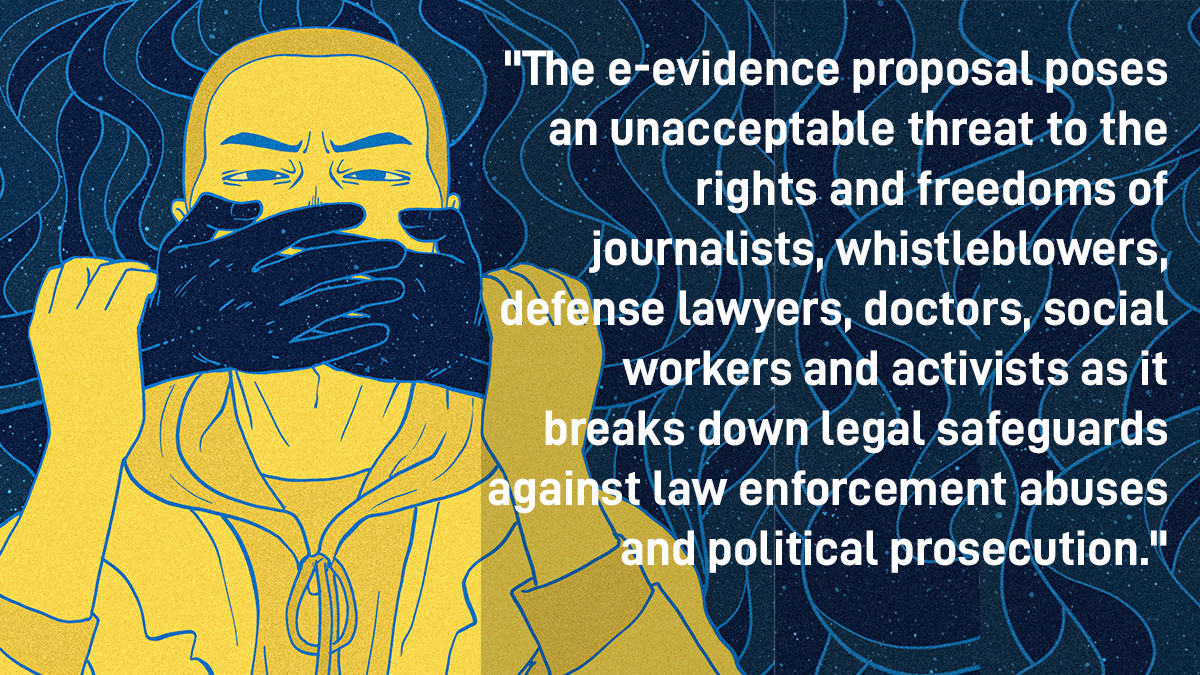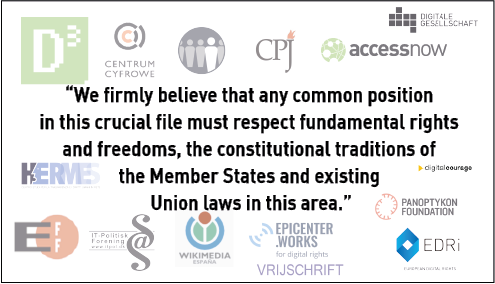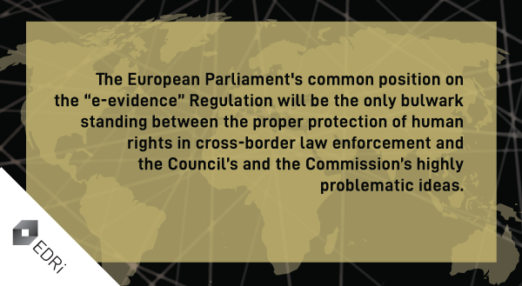Cross border access to data
Filter resources
-

New Cybercrime Protocol: More overreach, still no data protection safeguards
In the context of the fifth round of consultation with civil society, data protection authorities and industry, EDRi and the Electronic Frontier Foundation (EFF) coordinated a civil society submission to provide feedback on the new draft provisions relating to joint investigations, request for domain name registration information and expedited disclosure of stored computer data in an emergency.
Read more
-

“E-evidence”: Mixed results in the European Parliament
The European Parliament Committee on Civil Liberties (LIBE) agreed on a final text for the Regulation on cross border access to data (so-called “e-evidence” proposal). Despite some improvements designed to better protect people against law enforcement overreach across jurisdictions, the Committee’s majority has unfortunately also made major compromises that will put the rights of journalists, lawyers, doctors, social workers and individuals in general at risk.
Read more
-

WTO trade talks must respect privacy
Together with over 40 consumer and digital rights groups, EDRi calls on global governments to place people’s fundamental rights to data protection and privacy at the centre of digital trade negotiations.
Read more
-

EDRi with 25 organisations urge Parliament to protect journalists, doctors, lawyers, social services
Together with a coalition of 25 organisations and companies, EDRi urges members of the European Parliament’s Civil Liberties, Justice and Home Affairs Committee (LIBE) to include strong procedural safeguards in the so called “E-Evidence Regulation”.
Read more
-

Technology, migration, and illness in the times of COVID-19
In our ongoing work on technology and migration, we examine the impacts of the current COVID-19 pandemic on the rights of people on the move and the increasingly worrying use of surveillance technology and AI at the border and beyond.
Read more
-

Open letter: Civil society urges Member States to respect the principles of the law in Terrorist Content Online Regulation
On 27 March 2020, European Digital Rights (EDRi) and 12 of its member organisations sent an open letter to representatives of Member States in the Council of the EU. In the letter, we voice our deep concern over the proposed legislation on the regulation of terrorist content online and what we view as serious potential threats to fundamental rights of privacy, freedom of expression, etc.
Read more
-

Germany: Invading refugees’ phones – security or population control?
In its new study, EDRi member Society for Civil Rights (GFF) examines how German authorities sniff out refugees’ phones. The aim of “data carrier evaluation” is supposed to be determining a person’s identity and their country of origin. However, in reality, it violates refugees’ rights and does not produce any meaningful results.
Read more
-

Accountable Migration Tech: Transparency, governance and oversight
Migration continues to dominate headlines around the world. For example, given the currently deteriorating situation at the border between Greece and Turkey, with reports of increasingly repressive measures to turn people away, new technologies already play a part in border surveillance and decision-making at the border.
Read more
-

E-evidence and human rights: The Parliament is not quite there yet
The European Parliament Committee on Civil Liberties (LIBE) is currently busy working out a compromise between its different political groups in order to establish a common position on the “e-evidence” Regulation.
Read more
-

Click here to allow notifications in cross-border access to data
From a fundamental rights perspective, it’s essential that the proposal enabling cross-border access to data for criminal proceedings (“e-evidence”) includes a notification mechanism. However, this requirement of a notification seems to be out of the question for those advocating for “efficiency” of cross-border criminal investigations, even if that means abandoning the most basic procedural safeguards […]
Read more
-

Double legality check in e-evidence: Bye bye “direct data requests”
After having tabled some 600 additional amendments, members of the European Parliament Committee on Civil Liberties (LIBE) are still discussing the conditions under which law enforcement authorities in the EU should access data for their criminal investigations in cross-border cases. One of the key areas of debate is the involvement of a second authority in […]
Read more
-

Casual attitude in intelligence sharing is troubling
A recent report by Dutch Military Intelligence and Security Service CTIVD shows that the Dutch secret services regularly violate the law when sharing intelligence with foreign services. For the sake of privacy and freedom of communication, it is crucial that data sharing safeguards are both tightened and more strictly enforced.
Read more
